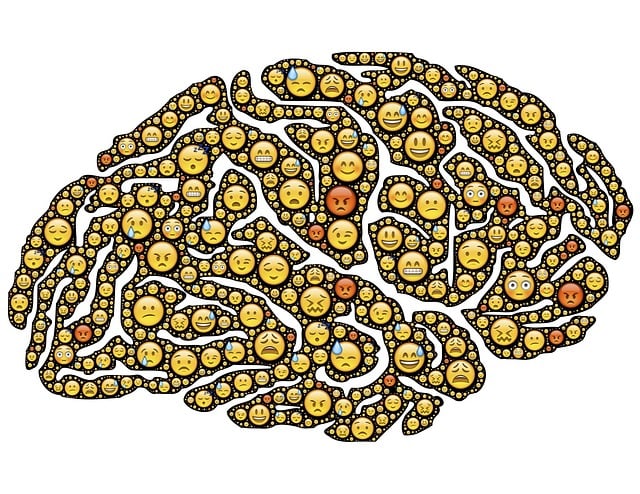Crisis Intervention Teams (CITs) are cross-sector groups addressing mental health crises, especially alcohol abuse among young children. Consisting of healthcare, law enforcement, and social services professionals, CITs provide immediate support and long-term recovery resources through evidence-based practices like mood management and tailored therapy for young children alcohol abuse cases. Specialized training equips professionals with age-appropriate, trauma-informed therapy and cultural sensitivity to address root causes, prevent depression, and promote holistic wellness. Effective CIT training programs, including mindfulness meditation, enhance crisis response strategies, creating safer communities. Proven in schools, these programs improve academic performance and social-emotional well-being through supportive environments and coping strategies.
“In today’s complex social landscape, effective crisis intervention is vital to support youth facing alcohol abuse issues. This article explores comprehensive training programs designed to foster specialized care. ‘Understanding Crisis Intervention Teams’ provides a foundational overview, highlighting the impact of alcohol abuse on young children and the urgent need for tailored assistance. We delve into key training components, strategic empowerment techniques, and real-world success stories, emphasizing the importance of therapy for vulnerable youth.”
- Understanding Crisis Intervention Teams: A Comprehensive Overview
- The Impact of Alcohol Abuse on Young Children and the Need for Specialized Support
- Key Components of Effective Crisis Intervention Team Training Programs
- Strategies for Training and Empowering Professionals to Assist Struggling Youth
- Real-World Applications: Success Stories from Crisis Intervention Team Training
Understanding Crisis Intervention Teams: A Comprehensive Overview

Crisis Intervention Teams (CITs) are specialized groups designed to swiftly and effectively respond to individuals in crisis, particularly those suffering from mental health issues or substance abuse like alcohol abuse among young children. These teams typically consist of cross-trained professionals from various sectors including healthcare, law enforcement, social services, and education. The primary goal is to deescalate situations, provide immediate support, and connect individuals with appropriate long-term resources for recovery.
CITs play a vital role in mental health education programs, focusing on evidence-based practices such as mood management and communication strategies. Through rigorous training, team members learn to assess risk factors, implement safety plans, and offer therapeutic interventions tailored to each person’s unique needs. This collaborative approach ensures comprehensive care, fostering not just stability but also long-term wellness for those facing severe crises, including young children struggling with alcohol abuse.
The Impact of Alcohol Abuse on Young Children and the Need for Specialized Support

The impact of alcohol abuse on young children is a pressing issue that demands specialized support and intervention. Children growing up in households where alcohol consumption is prevalent often face unique challenges. Prolonged exposure to alcoholic parents or caregivers can lead to severe emotional, behavioral, and cognitive issues. These problems may manifest as learning difficulties, poor academic performance, social withdrawal, aggression, or even mental health disorders such as depression prevention.
Specialized crisis intervention team training programs are crucial in equipping professionals with the necessary skills to support these vulnerable children. Therapy for young children affected by alcohol abuse should focus on mindfulness meditation and inner strength development. These strategies can help them process trauma, regulate emotions, and build resilience. By addressing the root causes and providing targeted interventions, such programs contribute significantly to depression prevention and fostering healthy development in children at risk.
Key Components of Effective Crisis Intervention Team Training Programs

Effective crisis intervention team (CIT) training programs are multifaceted and inclusive, designed to prepare healthcare providers for a wide range of crises, including those related to alcohol abuse among young children. A key component involves therapy for young children that is age-appropriate and trauma-informed, ensuring the well-being and resilience of this vulnerable population. These programs teach mental health professionals how to assess risks accurately using evidence-based tools like comprehensive risk assessment models.
Beyond technical skills, cultural competency training for healthcare providers is vital to addressing diverse community needs. It enables CIT members to offer culturally sensitive interventions that resonate with families from various backgrounds. By integrating these aspects into their training, CIT programs foster a collaborative environment where professionals from different disciplines work cohesively to deliver holistic care, enhancing the overall effectiveness of crisis response strategies and promoting mental wellness within communities.
Strategies for Training and Empowering Professionals to Assist Struggling Youth

Training programs for crisis intervention teams play a vital role in equipping professionals to support struggling youth. An effective approach involves a multifaceted strategy that combines practical skills, emotional resilience, and cultural sensitivity. These programs should emphasize empathy-building strategies, fostering an environment where young individuals feel understood and validated. By promoting mental wellness as a core component, participants learn to recognize and address the unique challenges faced by children experiencing alcohol abuse or other crises.
Incorporating cultural sensitivity in mental healthcare practice is essential, ensuring that interventionists can connect with diverse youth from various backgrounds. This includes training in trauma-informed care, understanding the impact of systemic issues, and adapting support methods accordingly. Through role-playing scenarios and experiential learning, professionals develop the confidence to navigate delicate situations, offering a safe space for vulnerable youth to express themselves and begin their journey towards healing.
Real-World Applications: Success Stories from Crisis Intervention Team Training

Crisis intervention team training programs have proven to be powerful tools in various real-world applications. One notable success story involves schools implementing these strategies to address student trauma, particularly among young children affected by alcohol abuse within their families. By integrating crisis intervention guidance into school settings, educators have been able to foster a supportive environment that strengthens students’ inner strength development. This proactive approach has led to improved academic performance and enhanced social-emotional well-being.
Additionally, mindfulness meditation techniques taught through these training programs have shown significant benefits. They equip both students and staff with effective coping strategies, helping them navigate stressful situations with greater resilience. These success stories underscore the profound impact of crisis intervention team training in creating safer, more nurturing communities—a testament to the power of empowering individuals with the skills to support one another during challenging times.
Crisis intervention team training programs are invaluable in equipping professionals with the skills needed to support young individuals facing crises, especially those affected by alcohol abuse. By integrating specialized training into standard protocols, communities can foster healthier, more resilient youth. These programs not only enhance the effectiveness of crisis response but also contribute to long-term positive outcomes for vulnerable children, ensuring they receive the therapy and care they deserve.














